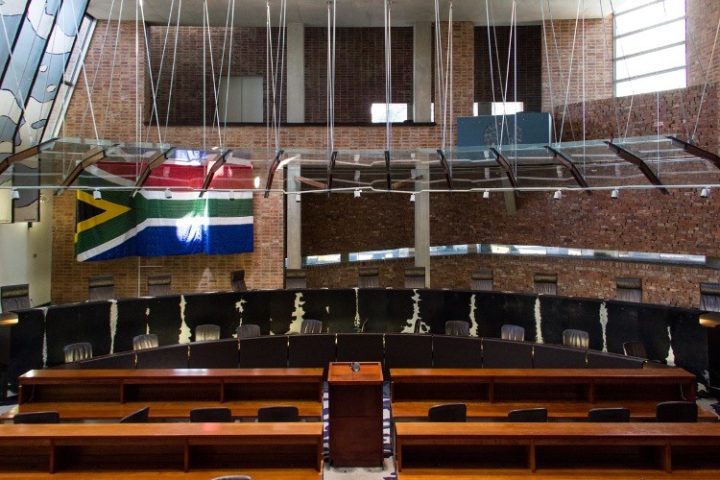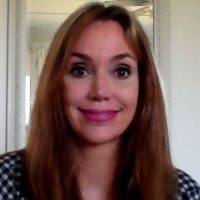
The Constitutional Court of South Africa has been asked to do justice for the South African people in declaring and suspending the lockdown measures taken by President Cyril Ramaphosa on the grounds that they’re a violation of the South African Constitution and therefore invalid, as well as declaring that the people of South Africa should not be liable for a massive debt to the International Monetary Fund (IMF) that was incurred to fund the lockdown for an unproven pandemic; holding the South African Reserve Bank (SARB) completely responsible for acting inappropriately as the country’s financial authority; insisting on the resignations of the president, speaker of parliament, and the governor of SARB; granting South Africans a referendum on a vote of no confidence; liquidating the SARB for the financial losses incurred by the country; and granting a referendum to decide on a metal-based currency in order to avoid manipulation of the South African financial system.
Ricardo Maarman, partnered with eight thousand South Africans, has filed Constitutional Court Case number 299/21 against President Cyril Ramaphosa, Parliament, and the Reserve Bank.
Maarman, who has a master’s degree in international politics, laid out his case for the South African public in a recent video that was distributed on social media.
The first charge against President Ramaphosa is that he did not confirm the claims made by the Chinese Government and World Health Organization (WHO) before imposing a lockdown on the South African people. Secondly, he didn’t send scientists to China to obtain a pure sample of the SARS-CoV-2 virus, isolated from all other contaminants and substances. Such a sample could have been used to infect an organism to establish whether it produces the symptoms of COVID-19, and determine whether the virus is as deadly as claimed by the Chinese government and the WHO. This process should have been repeated several times for reliability, after which President Ramaphosa should have presented the facts to the people of South Africa before declaring a national state of disaster. In not following this protocol, the president contravened section 36(1) of the South African Constitution, which contemplates that he can only limit the rights of South African citizens if he is able to present reasonable justification to them — a requirement of any open and democratic society.
The charges against the South African Parliament are that Parliament didn’t call a debate, didn’t question the president, and didn’t ask for proof of the virus before supporting his lockdown measures. In terms of sections 37(1) and 55(2) of the South African Constitution, Parliament should have put all measures in place to establish that the virus was a dangerous threat to South Africans. They had the power to demand a sample of the virus — and the president would have had no choice but to comply. After all, by means of section 22(3), Parliament is required to ensure that a president has reasonable justification when taking away the rights of the people; therefore they should be held accountable for this unnecessary, economically devastating lockdown.
Similarly, under section 224(2) of the Constitution, SARB had a responsibility to confirm the existence and severity of the SARS-CoV-2 virus before funding a national lockdown and “selling the South African people into tax slavery.” Adding to the significance of the allegation against SARB is the conflict of interest on the part of the bank’s governor, who worked on both sides of the Relief Fund agreement — counseling the government on a budget to enable a billion-dollar loan that would benefit the IMF, for which he was an advisor. On January 11, 2019, Uncensored News Magazine — a best-selling alternative magazine throughout Australia and New Zealand — published a “Complete List of Rothschild Owned and Controlled Banks” by Martin Harris, which included SARB. The Ubuntu Liberation Movement of South Africa was in agreement that the Rothschilds, Rockefellers, and other international banking families owned the South African Reserve Bank. The party withdrew from the political process at the end of 2017 — after six years of “attempting to inject a seed of consciousness into the political beast.”
In his video, Maarman cited incriminating confessions coming from both the president and the speaker of parliament. President Ramaphosa admitted, under oath at the Zondo Commission, that certain African National Congress (ANC) officials are there to serve the party and not the people. At the same commission, Speaker of Parliament Thandi Modise admitted that members of parliament don’t ask “unnecessary” questions because of future aspirations to become ministers. True to her confession, Modise is now the South African minister of defense.
With regard to the lack of scientific justification for the lockdown, Maarman inferred shocking evidence from Christine Massey of Canada — an expert in biostatistics — who, in partnership with several other experts, has been using Freedom of Information (FOIA) requests as a research tool to unearth the truth about SARS-CoV-2 from hundreds of laboratories worldwide. He also has the sworn testimonies of colleagues and associates of Dr. Kary Mullis, an inventor of the PCR test who died shortly before the outbreak. In addition, section 39(1) of the South African Constitution requires the Constitutional Court to consider evidence from international cases when establishing its rulings, which means they need to consider Spain’s rulings against the reliability of the PCR test. In addition, the Stuttgart High Court in Germany ruled that when a sample of a virus is mixed with any substance, one cannot reliably identify the virus.
In the words of Maarman, “It is now up to the Constitutional Court to do justice for the South African people.”




